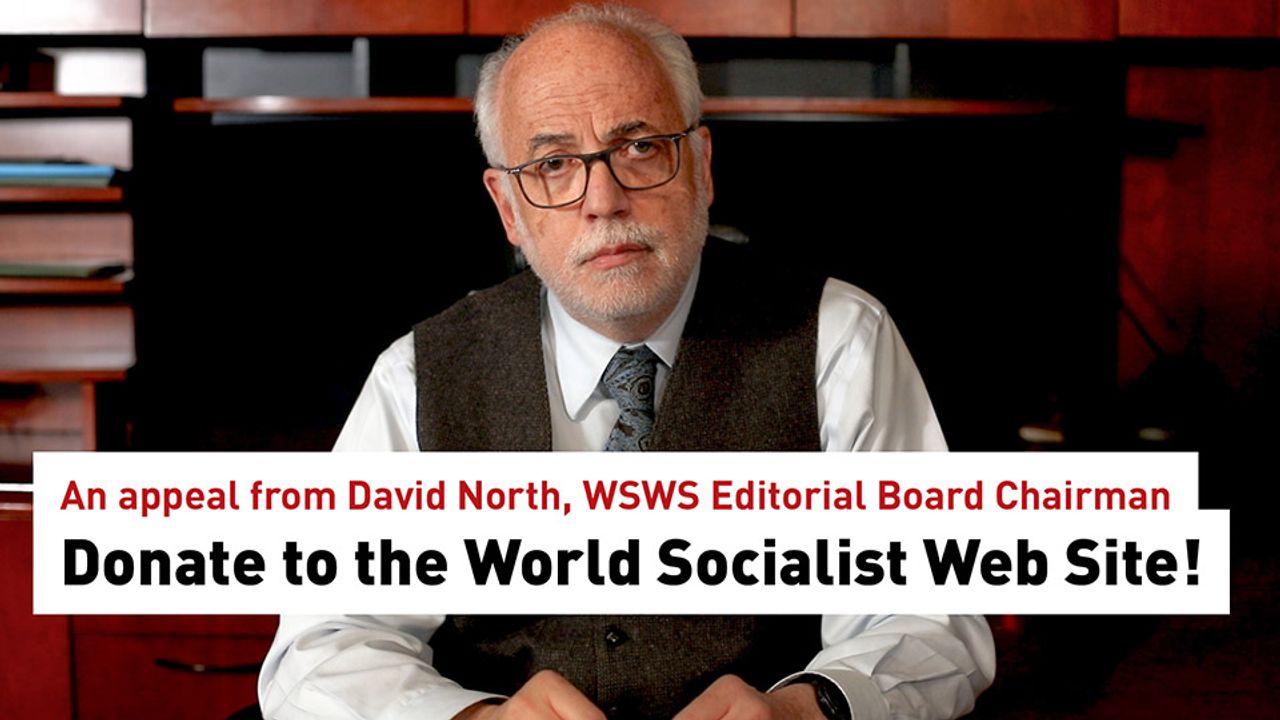Jerry White
Amid the havoc on the global stock exchanges Tuesday, triggered by concerns over a US-China trade war, signs of a global economic downturn and growing resistance by workers, the most powerful financial interests are demanding an acceleration of the war against the working class.
A week after General Motors announced the planned shutdown of five plants in the US and Canada and the elimination of nearly 15,000 hourly and salaried workers’ jobs, an analyst for Wall Street bank Morgan Stanley told investors that Ford would likely carry out even deeper cuts, eliminating 25,000 employees from its global workforce.
While Ford has yet to provide details of its $11 billion cost-cutting “Fitness Program,” Morgan Stanley analyst Adam Jonas said in a note to investors, “We estimate a large portion of Ford’s restructuring actions will be focused on Ford Europe, a business we currently value at negative $7 billion. But we also expect a significant restructuring effort in North America, involving significant numbers of both salaried and hourly UAW and CAW workers,” Jonas said, referring to autoworkers who belong to the United Auto Workers and the Canadian Auto Workers, now known as Unifor.
The decision by GM to shut major assembly plants in Detroit, Lordstown, Ohio and Oshawa, Ontario, plus two transmission plants in Michigan and Maryland, led to a sharp spike in GM shares last week. The company, which is expected to make $10 billion in profits in 2018, is freeing up billions in cash to continue its stock repurchase program and dividend payments to wealthy investors.
After selling off its European operations and closing all its plants in Australia and South Africa, GM is closing an assembly plant in Gunsan, Korea, and two other, still unspecified, international plants in the coming year.
Despite eight straight years of profits, Wall Street has been punishing Ford stock, which has fallen by 25 percent this year, to only $9.24 per share. Last August, Moody’s Investors Service downgraded Ford’s credit rating to Baa3, one notch from junk status, pointing to softening profit margins in North America, reversals in the Chinese market and large losses in Europe and South America.
The brutal downsizing by the US-based automakers is part of a wave of international job cuts.
German-based drug manufacturer Bayer AG has just announced plans to cut 12,000 jobs out of its global workforce of 118,000 by the end of 2021. On Monday, more than 1,000 Bayer workers protested at the company’s site in Wuppertal, in western Germany. The company, which plans to carry out a “significant number of reductions” in Germany, is also eliminating more than 4,000 jobs at its crop sciences division, a consequence of Bayer’s acquisition of US rival Monsanto earlier this year. The moves, which came after shares of the company fell by more than a third this year, are seen as an effort to mollify Wall Street.
French steel pipe maker Vallourec, which owns a steel mill in Youngstown, Ohio, near the threatened GM Lordstown plant, announced plans last week to cut 1,800 jobs—1,200 at three sites in France and 600 in Germany. The company, which supplies the oil and gas industry, has struggled to recover since oil prices crashed in 2015. It has seen its shares plummet 56.6 percent over the last year.
Last month, Montreal-based train and aircraft manufacturer Bombardier announced the layoff of 5,000 workers by 2021 to reduce its long-term debt by $9 billion. The workers being terminated include 2,500 in Quebec, 500 in Ontario and another 2,000 in overseas operations, including 490 in Belfast, Ireland. The announcement follows the elimination of 14,500 jobs around the world over the last three years.
Toronto-based Thomson Reuters Corporation said on Tuesday it will cut its workforce by 12 percent by 2020, axing 3,200 jobs. The media and information company said it will buy back $9 billion in stock from shareholders starting Tuesday, sending its stock up 4 percent.
US corporations are expected to spend a record $1 trillion on stock buybacks this year, according to Goldman Sachs, up 46 percent from 2017. Global mergers and acquisitions hit a record $3.3 trillion in the first nine months of the year, eclipsing the previous high on the eve of the global financial crash more than a decade ago.
In its more recent report, the Organization for Economic Cooperation and Development (OECD) concluded that the world economy would expand by only 3.5 percent next year, down from 3.7 percent this year. The 34 member states in Europe and North America would see an even sharper decline, with growth falling from 2.5 percent in 2017–18 to just under 2 percent by 2020.
Commenting on the report, the New York Times wrote that the OECD had “effectively concluded that the current situation is as good as it gets before the next pause or downturn. If this is indeed the high-water mark of global prosperity, that is likely to come as a shock to the tens of millions of people who have yet to recover from the devastation of the Great Recession.”
“It’s just going to exacerbate the tensions that have led to the socioeconomic and political problems we have seen in the United States and parts of Europe,” Thomas A. Bernes, an economist at the Center for International Governance Innovation, a Canadian research institution, told the Times. “Inequality is going to become even more pronounced.”
Over the last decade, the ruling class has relied on the trade unions and the ostensibly reformist and “left” parties to suppress opposition to an historic transfer of wealth to the super-rich, largely through the inflation of the stock markets. The unions have promoted economic nationalism as a means of covering for their collusion with the ruling class in the destruction of workers jobs, wages and benefits.
However, after decades in which the class struggle has been suppressed, this year has seen a resurgence of strikes and mass protests, from the wildcat strikes of US teachers to recent mass strikes in Sri Lanka, Greece and now in the streets of Paris. If the Yellow Vest movement has gained momentum it is because it has not been under the control of the unions, which opposed it and are now colluded with Macron to suppress it.
The escalation of the social counter-revolution by the ruling class, under conditions of renewed economic crisis, points to an explosive intensification of class conflict in 2019, which will come into ever more direct conflict with the trade unions, the entire political apparatus, and the capitalist system as a whole.


No comments:
Post a Comment